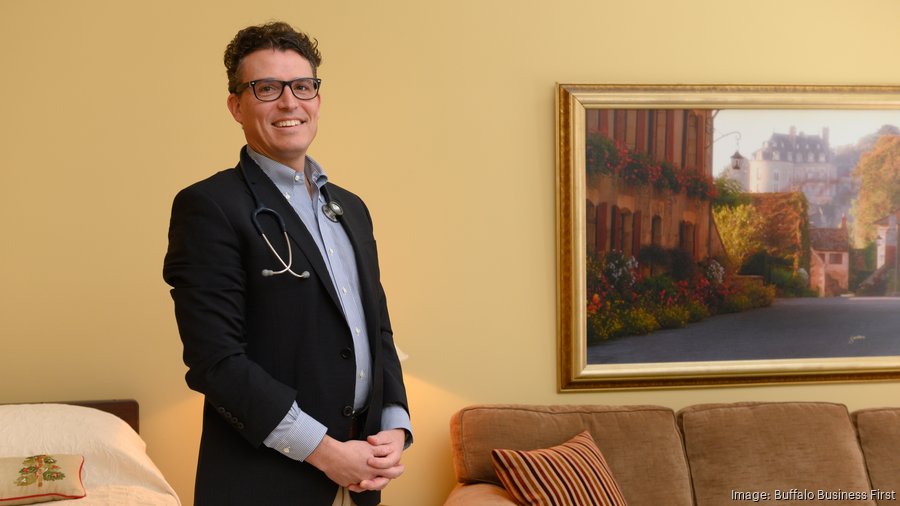While medical practices nationwide have scrambled to adjust to using telehealth and figuring out how to see patients without an office visit during the Covid-19 pandemic, Landmark Health is thriving.
The company’s model seems designed exactly for this crisis: Home visits for chronically-ill patients by physicians and advanced practice providers supplemented by telehealth technology.
“For Landmark, the future looks good as we expect additional expansion over the next year,” said Dr. James Stephen, regional medical director.
Founded six years ago, Landmark entered the Western New York market in 2015 through a contract with HealthNow New York to cover thousands of its Medicare Advantage members through the BlueCross BlueShield of Western New York division. It expanded last year with more patients from UnitedHealth.
The Huntington Beach, Calif., company now has access to 11,000 patients, about half of whom have opted in to access home visits 24-7 from a doctor, nurse practitioner or physician assistant instead of heading to an emergency room or urgent care.
“We believe this is the future of health care: Providing in-home care for high-risk folks who really need it,” said Abe Mathai is vice president and general manager. “With Covid coming into the picture a few months ago, now is not a time that people want to be in an ER, a hospital or in a doctor’s office or an urgent care.”
The model does not replace the relationship with a patient’s primary care doctor, but supplements it to provide additional monitoring and care for patients with multiple chronic conditions.
Patients must opt-in for the program, and more of them are doing just that since the pandemic broke and these sickest of individuals are being encouraged to stay home. Landmark’s first job is to educate those individuals, then explain how the program is designed to keep them healthy.
Even though Landmark has signed contracts with health plans, members sometimes mistakenly think it’s a telemarketing company trying to sell something when in reality the service is provided at no cost. But since the pandemic hit, conversion rates are up.
“We are rapidly engaging new members. People are now really seeing the value of our model and agreeing to the program at numbers we have not seen before,” Mathai said. “A typical rebuttal is, ‘I’m fine and I’ll call you if I need you’. Now, during Covid, people are like ‘maybe that’s a good idea’.”
Landmark providers respond to calls with full personal protective equipment, providing both maintenance visits for conditions like diabetes or heart conditions, as well as urgent care visits for dehydration. All patients are assessed by phone, with those experiencing more urgent needs advised if it’s more appropriate to call for an ambulance.
“Many times we know that’s not necessarily needed and we can come check it out, talk to a provider or nurse and take appropriate next steps,” Mathai said. “We tell our patients to call us first, and let’s talk through it.”
Though the company put maintenance visits on hold and shifted to more telephonic and video calls during the first phase of the pandemic other than for the most urgent of calls, it has pivoted back in recent weeks, with one in three visits being done in person in the home.
That shift followed guidance from a Covid Task Force that includes company leadership, legal counsel, infectious disease experts and operations personnel to make sure its 27 markets across the country were meeting state and local requirements.
The increased acceptance and demand has led to several new hires as well, with Landmark taking on physicians, NPs and PAs who may have been laid off or furloughed from other physician practices.
Additional contracts are in the works with new health plans that will expand operations even more, he said.
“We are fortunate,” Mathai said. “In very uncertain times economically, we are a medical provider at the front lines dealing directly with patients, and nobody has been furloughed. We are actively recruiting and hiring.”
